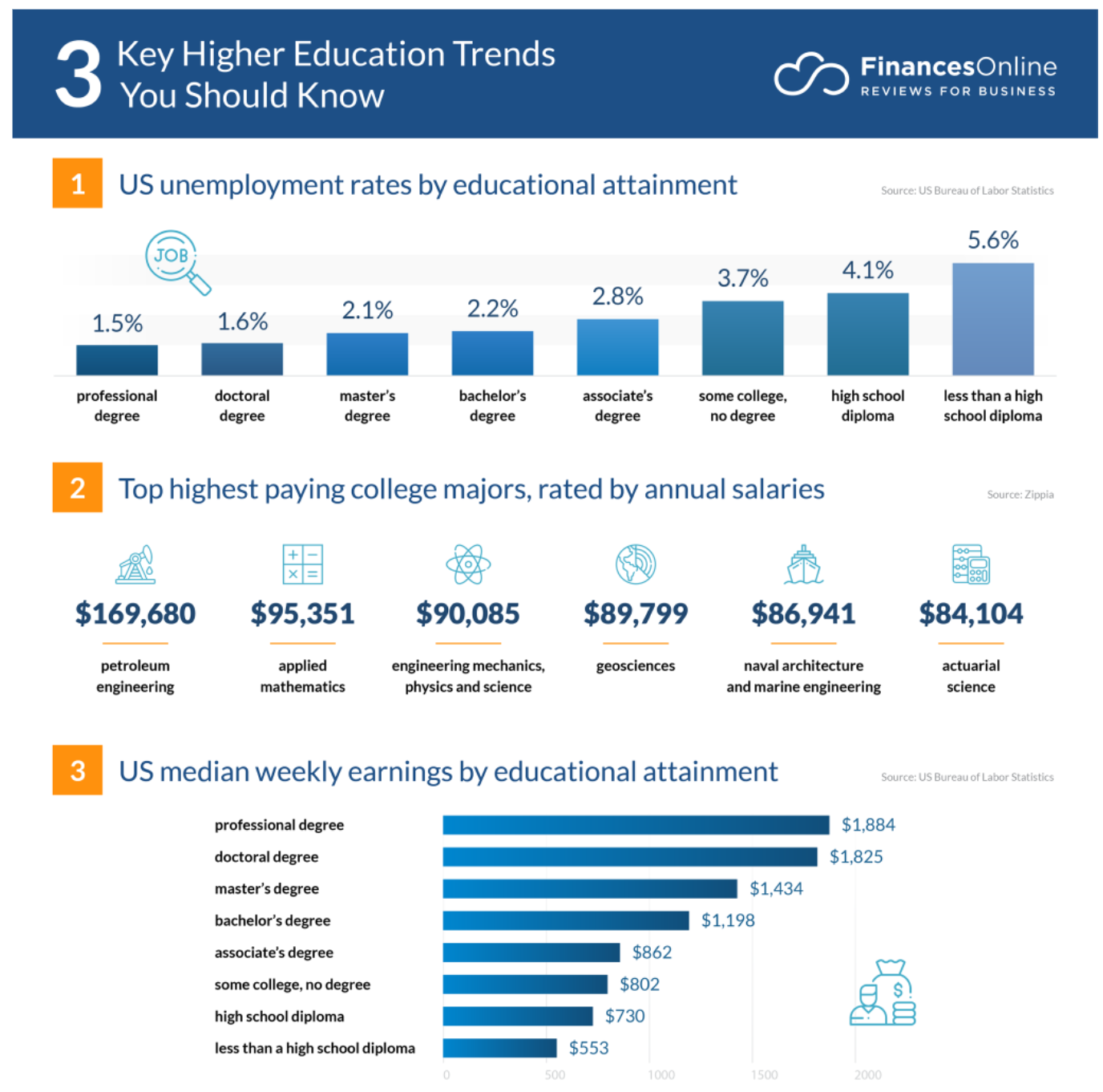Exploring the Top Education Trends for 2025 and Their Implications for PhD Programs
In the ever-evolving landscape of education, staying ahead of the curve is crucial, especially for those pursuing doctoral or postdoctoral degrees. As a dedicated resource for prospective doctorate and postdoctorate students, we're here to guide you through the top education trends expected to shape the academic landscape until 2025 and how they can be applied to your PhD journey.
1. Online Learning Evolution
Online education has witnessed unprecedented growth, and by 2025, it's projected to become an integral part of higher education. This trend opens up a world of possibilities for PhD candidates. The flexibility of online learning allows you to pursue your doctorate from anywhere in the world, breaking down geographical barriers and offering access to top-notch programs.
2. Personalized Learning Pathways
Personalization is at the forefront of education trends. Tailoring your PhD experience to align with your personal and career goals has never been more accessible. From choosing specialized research areas to selecting mentors who resonate with your interests, personalization empowers you to create a unique learning journey.
3. Interdisciplinary Collaboration
The boundaries between academic disciplines are blurring. Collaborative research across various fields is on the rise, and PhD programs are embracing this trend. Interdisciplinary collaboration fosters innovation and expands the horizons of your research, allowing you to make a more significant impact.
4. Research-Based Learning
Experiential learning through research is gaining prominence. Hands-on research experiences provide PhD students with valuable insights and skills. Embracing this trend ensures that your doctoral journey is not confined to textbooks but enriched by practical applications.
5. Lifelong Learning Culture
Education isn't a one-time event but a lifelong journey. Doctoral students are increasingly encouraged to adopt a mindset of continuous learning. This trend emphasizes the importance of staying updated with the latest developments in your field even after earning your PhD.
6. Global Perspectives
The world is more interconnected than ever. Doctoral programs are incorporating global perspectives into their curricula. This trend encourages students to explore international research opportunities, attend global conferences, and collaborate with peers from diverse backgrounds.
7. Digital Literacy
Digital literacy is no longer optional—it's a necessity. Doctoral candidates must adapt to the digital era, mastering data analysis tools, research software, and online collaboration platforms. These skills enhance your research capabilities and future-proof your career.
8. Sustainability and Social Responsibility
As global challenges like climate change and social inequalities persist, academia is emphasizing sustainability and social responsibility. PhD candidates can contribute meaningfully to these causes through their research, aligning their work with societal needs.
9. Mental Health and Well-being
The well-being of students is a top priority. Doctoral programs are focusing on mental health support, stress management, and work-life balance. This trend acknowledges the challenges PhD candidates face and seeks to create a supportive environment.
10. Industry Integration
Doctoral programs are bridging the gap between academia and industry. Collaborations with businesses and organizations offer PhD students real-world insights and networking opportunities. This trend enhances your employability and the applicability of your research.

At what point are you right now to take on the challenges of your Doctoral career?
As you embark on your PhD or postdoctoral journey, keep these education trends in mind. They offer valuable insights into the evolving academic landscape and how you can make the most of it. Remember, your pursuit of a doctorate is not just about earning a degree; it's about shaping your future and contributing to a world that values knowledge and innovation.